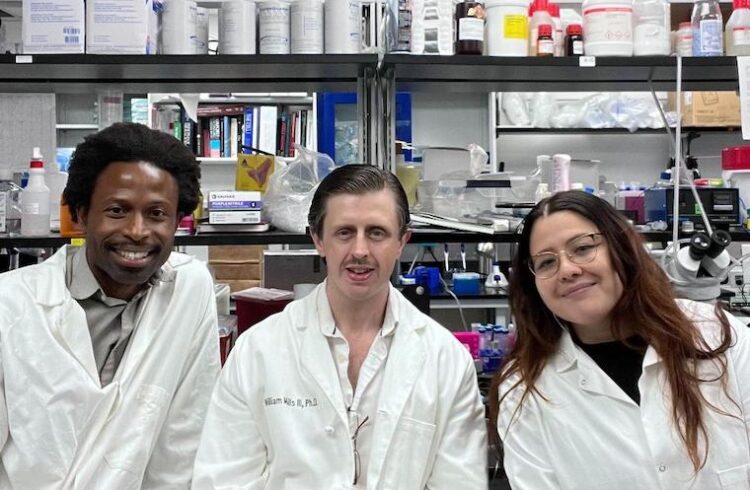
Infertility affects between 10 and 15 percent of couples worldwide. Surprisingly, problems with male fertility account for approximately 50 percent of infertility cases.
A new home test kit based on a protein in sperm discovered by University of Virginia Health System cell biologist John C. Herr, PhD, can assist couples in determining if a man’s sperm count is normal, low, or very low.
SpermCheck Fertility recently underwent clinical and consumer studies to evaluate its accuracy and ease of use. The results are reported as the cover article in the March 2010 issue of the journal Human Reproduction .
The device is an advance on the SpermCheck Vasectomy technology, also developed by Herr, which is already cleared by the FDA. By measuring sperm levels at 20 million sperm per milliliter and 5 million sperm per milliliter, Herr says men can determine if they have normal levels of sperm, low levels (between 5 million and 20 million per milliliter) and very low sperm levels (below 5 million). The device works similarly to home pregnancy tests, with lines that become colored based on the number of sperm found per milliliter.
Based on antibodies that bind to SP-10, a protein discovered in Herr’s laboratory, SpermCheck Fertility was recently cleared for sale in the European Union and is currently undergoing review by the US Food and Drug Administration. SP-10 is present at constant levels in each sperm head, says Herr, director of UVA’s Center for Research in Contraceptive and Reproductive Health.
“The SpermCheck Fertility test is designed as a first line assay for use by couples who suspect infertility. The test is also useful for men of any age who simply want to know if their sperm count is in the normal range. After reading the results couples can determine whether to seek comprehensive clinical evaluation of the male partner’s fertility status,” Herr explains. “This self-test could save money and time for couples struggling with infertility by identifying which partner may need further evaluation.”
A third product, SpermCheck Contraception, is now undergoing testing in a multi-center, NIH-funded study that is evaluating the effectiveness of a new contraceptive drug for men. Once a man starts using one of the current experimental male contraceptives, which are based on steroid compounds, sperm counts decline over a period of several months. The SpermCheck Contraception device could serve as a companion product to help men determine when sperm counts have reached safe levels should a male contraceptive drug or device become available in the marketplace.


